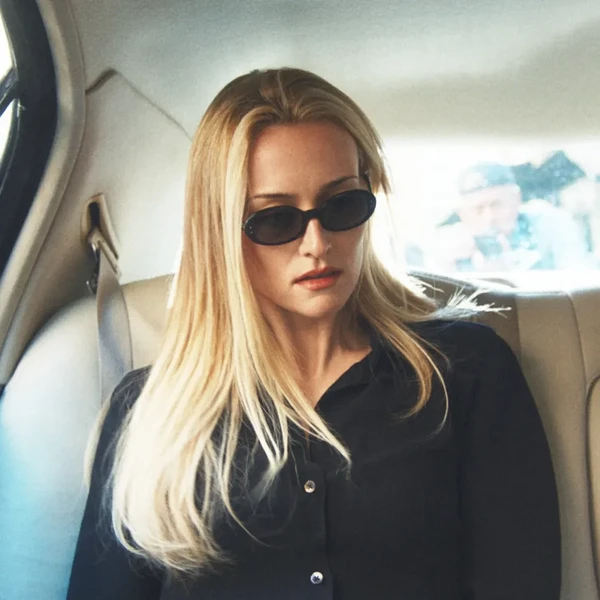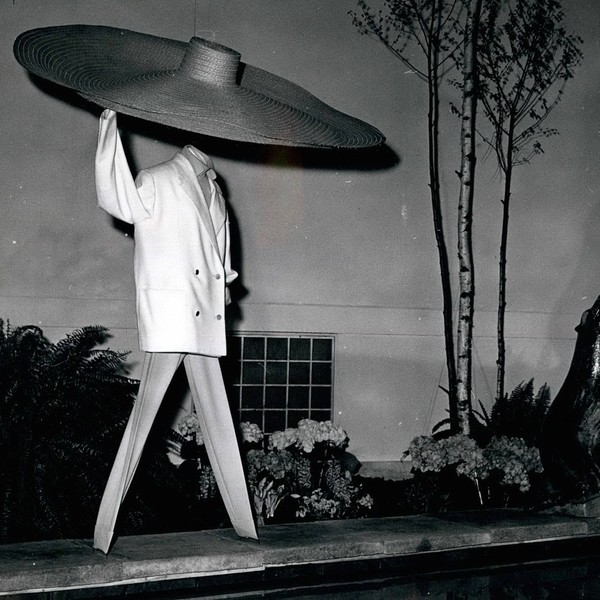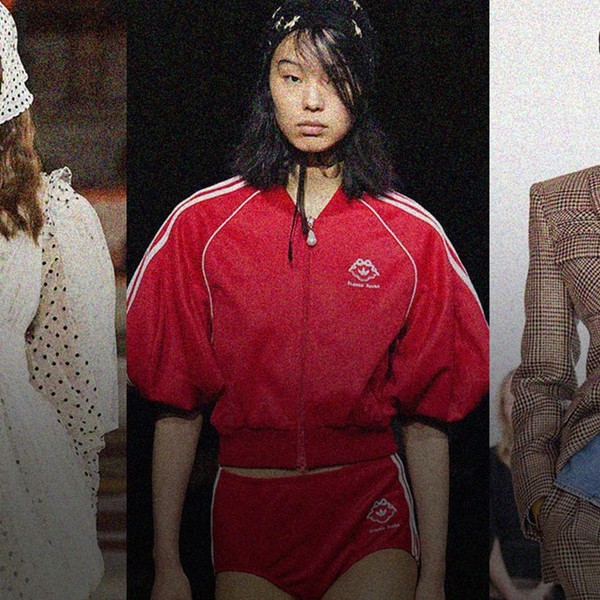Faerybabyy Says It’s Not That Deep
The musician premieres her single “Lucky Star” and talks to Coveteur about teenage influences, breakups, and lobotomies.
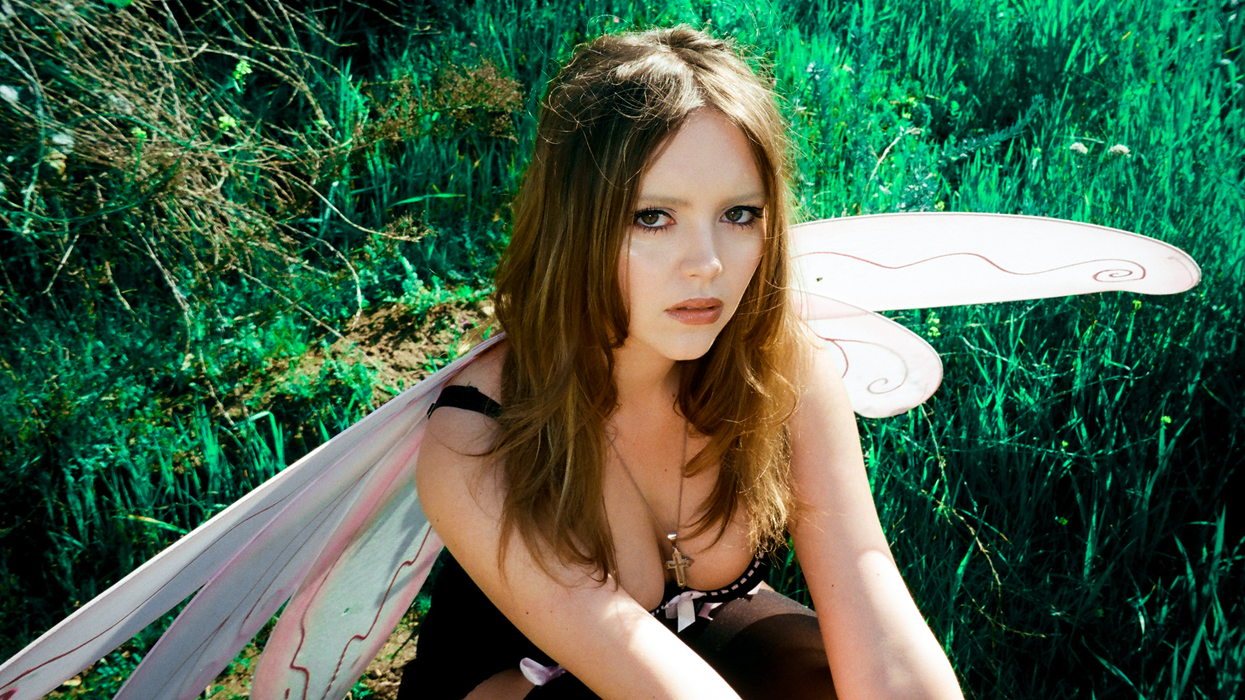
Payton Morse grew up listening to the radio station Country Legends 97.1, singing along with Patsy Cline and Johnny Cash with her grandpa as they drove down Texas highways. It’s an influence that shines through her own songs in the deep warmth of her voice. Her latest release as Faerybabyy, “Lucky Star,” showcases her unique vocal style and dark, winking sarcasm against sunny, jangly instrumentation, evoking post-punk legends like The Smiths and The Cure. Though she has embraced her voice, it was a source of insecurity for much of her life and a perceived obstacle to her artistic aspirations after an ex-boyfriend (read: idiot) complained about it once. Their breakup catalyzed the release of her first songs—while she had always wanted to be a musician, a healthy dose of post-relationship rage was enough to make that dream a reality.
“Lucky Star” is the first single from her upcoming EP, out May 24th, and is accompanied by a music video that combines the aesthetics of two essential monuments to early-aughts girlhood: Sofia Coppola movies and Delia’s catalogs. It’s pastoral, pouty, and a little punk—she’s hang-drying her lingerie, but she also may be plotting a grisly little murder. Here, we premiere “Lucky Star,” and Morse joins us from a horse ranch in Sunland, California, to talk about her redneck roots, her egg-punk side project, and the beauty of clotheslines.
Maraya Fisher: What kind of music did you listen to growing up?
Payton Morse: I have very country redneck roots. I was raised by my mom as well, but I was with my grandparents a lot, specifically my grandpa. We would just drive around, and he only listened to old country. There's a radio station in the Houston area called Country Legends 97.1. We would listen to old Hank Williams—not Hank Williams Jr., Hank Williams, OG—Patsy Cline, Conway Twitty, Johnny Paycheck, Loretta Lynn, Johnny Cash, and stuff like that. My grandma loved Elvis.
My mom was a teen mom, and it was the ’90s, so she loved the Houston rap. She would always listen to Fat Pat-type stuff and Three Six Mafia, which is Memphis rap. For my papa, my grandparents, and everybody else, it was strictly old country. Nothing else.
I think more than anything, the old country music shaped me a lot, especially because Patsy Cline, Elvis, and Johnny Cash all have such deep voices, and for some reason, I sing kind of like a little froggy boy. I think it's because the only girls I ever really sang along to were Patsy Cline and Connie Converse.
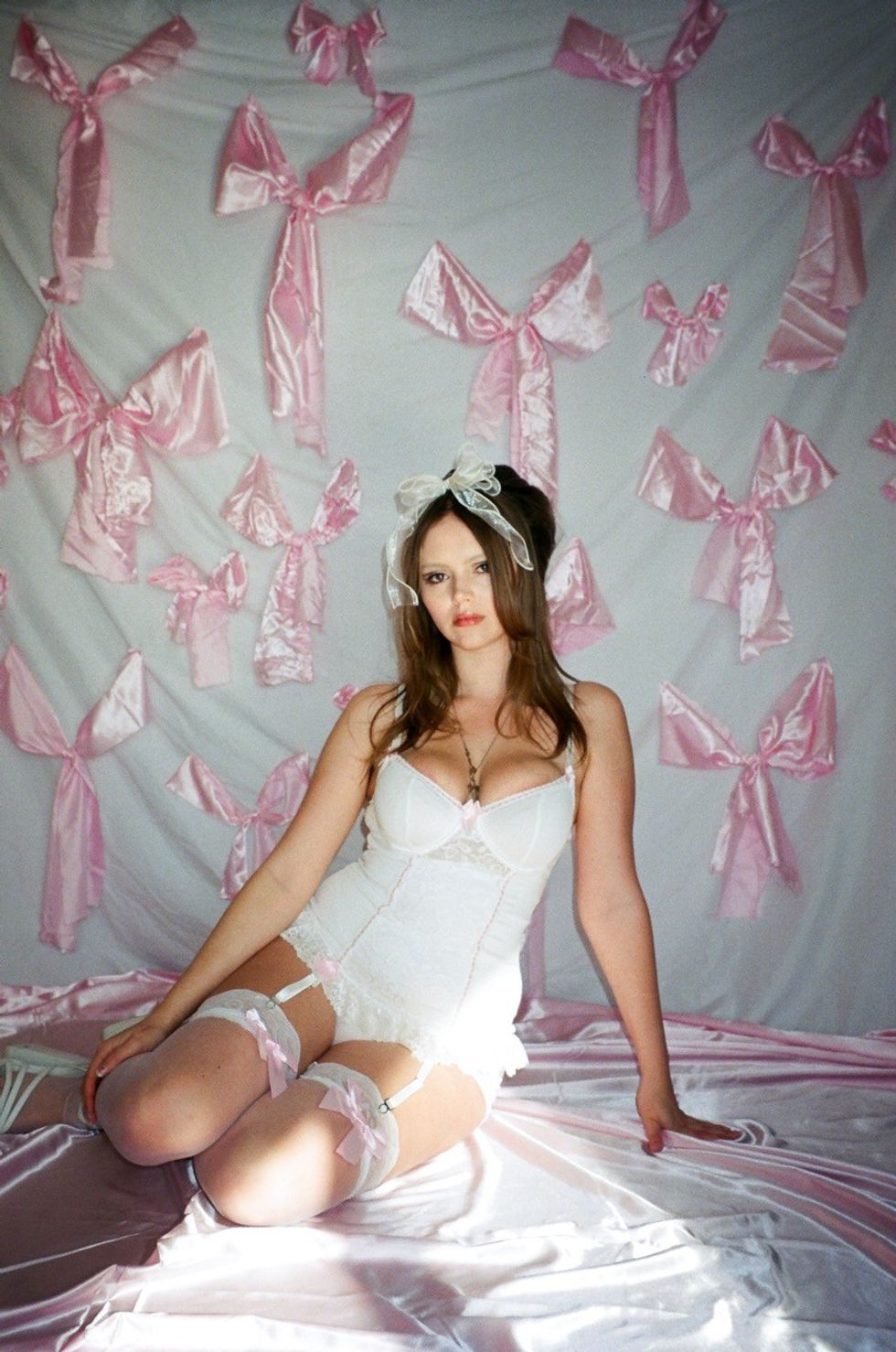
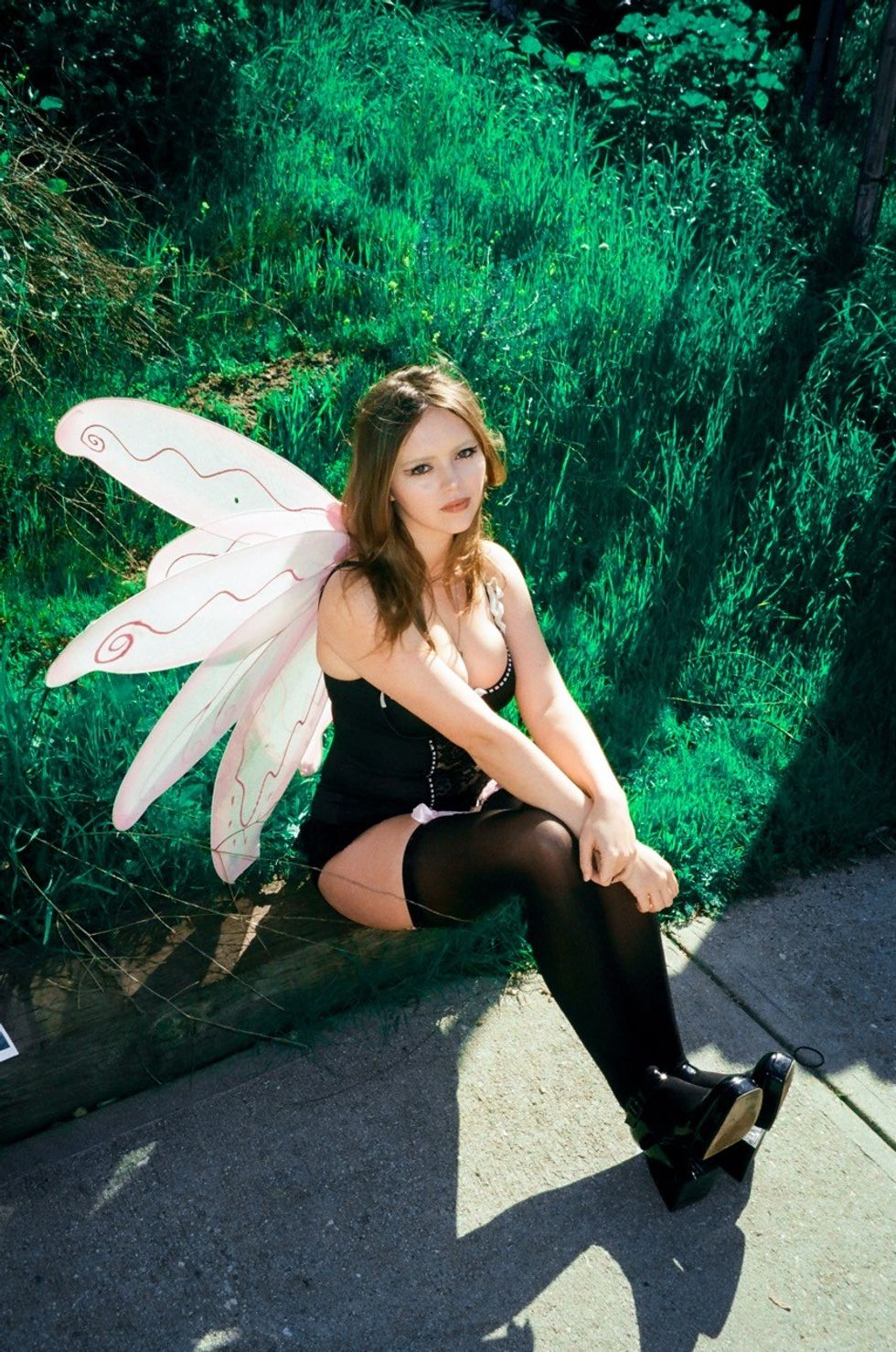
MF: I love your voice. Was that always how you sang or did you hone in on that sound?
PM: There was an evolution, for sure. I always sang like that in my car, because I loved old country. Then as I got older, I got really into the New Wave stuff, like The Cure and The Smiths. I was singing very loudly in the car with one of my ex-boyfriends once. I think it was something by Surf Curse, and I remember he plugged his ears and was like, "Ah!" And I was like, "What?" And he's like, "Your voice has bad frequencies." So I stopped singing in that deep, froggy voice because I was so ashamed. I was so embarrassed by it, but all I wanted to do was make my own music. Once we broke up, I finally started doing my music kind of as a fuck you, like, “I can do this too.” I always wanted to, so [the breakup] was the straw that broke the camel's back. That's what put me on the path to finally make it: vengeance.
When I first started making music, I wasn't singing deep at all because I thought that voice was so ugly. Then I remember being in a session for With All Due Respect, and I was like, “Can I just try something really weird?” I was hesitant to do it, but that's how I always wanted to sing. Then I did it, and everyone was just like, “What the fuck? How did that just come out of your body?”
It sounded so good with the songs, so I kept doing it. The other songs [before], I didn't even really like. I was just putting out music because I wanted to, but I can't sing like a girl. It's really hard for me. My voice breaks. I run out of breath. I was really sad about that because I always wanted to do music. But then I realized that some people actually do like that deep voice, and at the end of the day, I like it, and that's all that matters.
MF: I think it's cool, especially contrasted with the sugary post-punk instrumentation.
PM: I appreciate that. It's definitely a weird mix of a lot of really happy guitars and kill-myself lyrics.
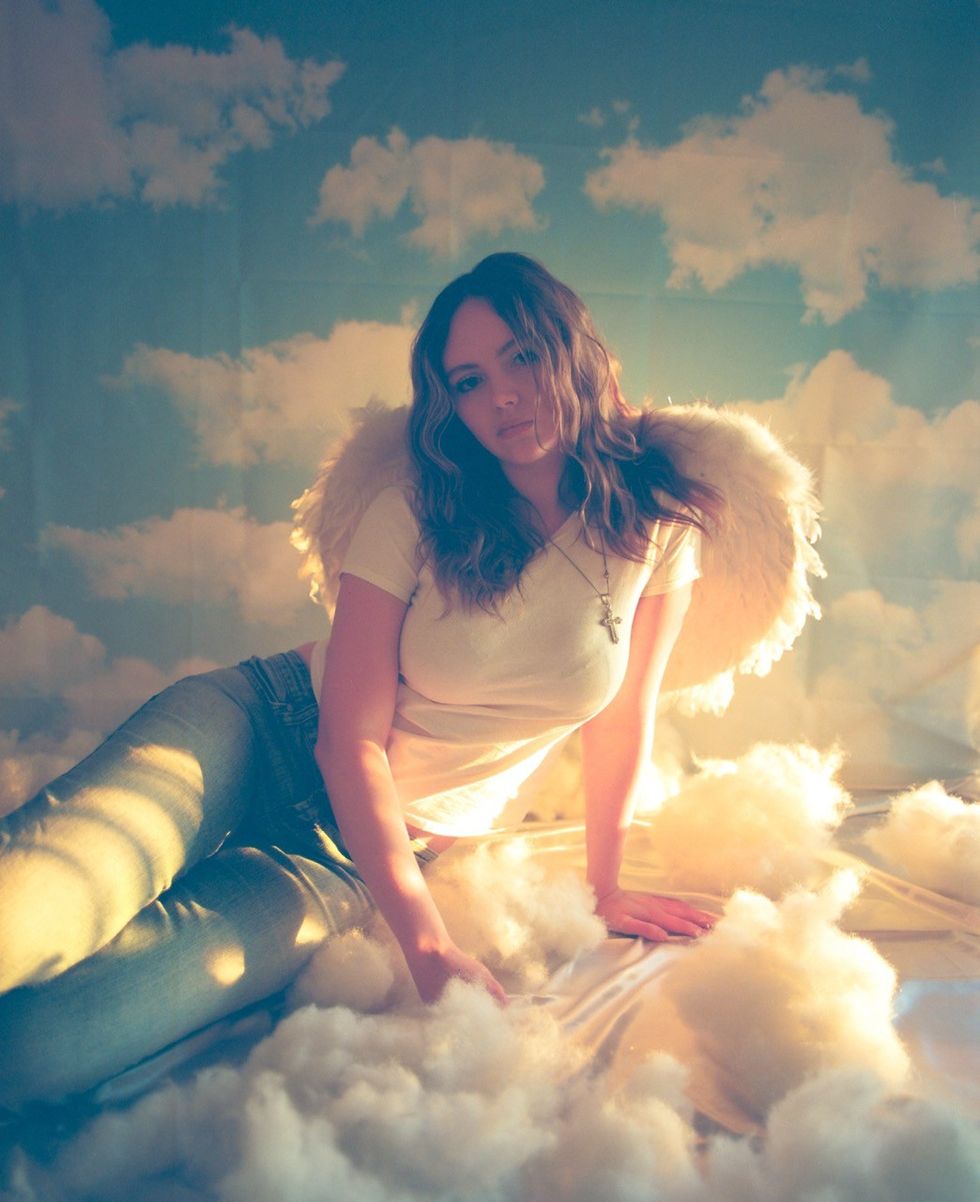
MF: You mentioned New Wave. When did you start listening to that kind of music?
PM: Honestly, I feel like I wasn't myself until I was 16. I really came into myself, and everything I started to like then is the stuff I still like now. I have not changed at all since I was 16—maybe I have more social anxiety now. I remember I was playing Grand Theft Auto V with my friend, and Bass Drum of Death was on the GTA V radio, and I was just like, “This is fucking sick.” I had joined a skate gang, and I was really into Black Sabbath, and I was listening to Pantera, Slayer, and Pink Floyd—just classic stoner metal kind of shit—with all these skater kids in the middle of Texas.
Then I found out what Burger Records was, and RIP because they're canceled, but everything was so amazing. That was the time for music, I think. Better than the 1960s, I think.
MF: Tell me about the name Faerybabyy.
PM: I used to tell people I was in a girl band because that was my plan, but it never ended up happening. I always thought my band name would be the Babettes, and I wanted to have a bunch of hot girl besties who played instruments. I wanted it to be the Spice Girls, where there was a redhead, and I wanted her to be Cherry Baby, and I was Faerybabyy. But that didn't end up happening, and I just stayed as Faerybabyy.
MF: What’s the story behind “Lucky Star”?
PM: If a guy stresses me out, I'll write a bunch of sad songs about it, but once I'm over something, I end up making something kind of silly. It's a weird play between reality and exaggeration, but also, there's so much truth to the way that we exaggerate whenever we're in love and angry.
That song was just me pissed at a guy and trying to make a joke out of it to get over it and make fun of myself. So I was just like, “Yeah, I hope your girlfriend has a heart attack.” It started off as a joke, and then I was like, “Oh, it totally works.” And I'm so scared that somebody's going to cancel me and be mad that I'm wishing ill on the girl.
MF: I think it's very obvious that it's in jest.
PM: Everything, for me, is pretty much in jest. Absurdism all the way. I talk about giving myself a lobotomy on the same EP. That song isn't out yet. The whole point of that song is that there are two paths to peace: lobotomy or Jesus. It's in jest, but it is true.
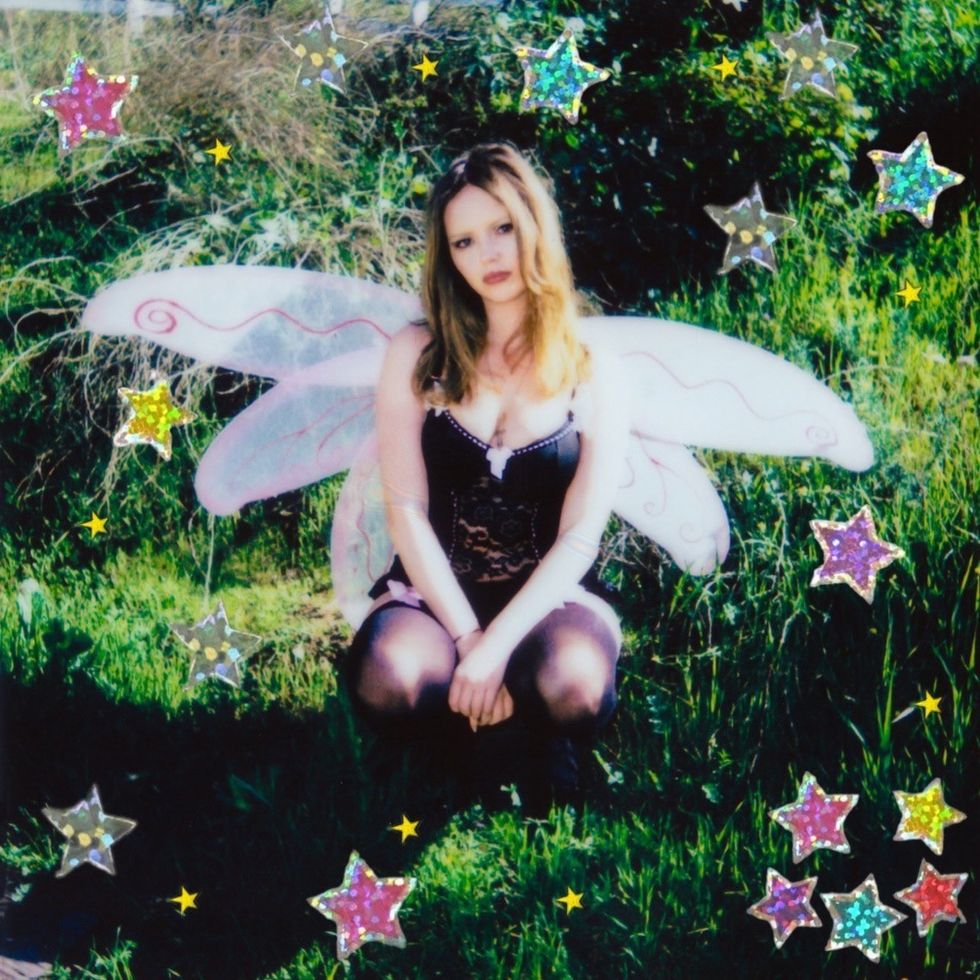
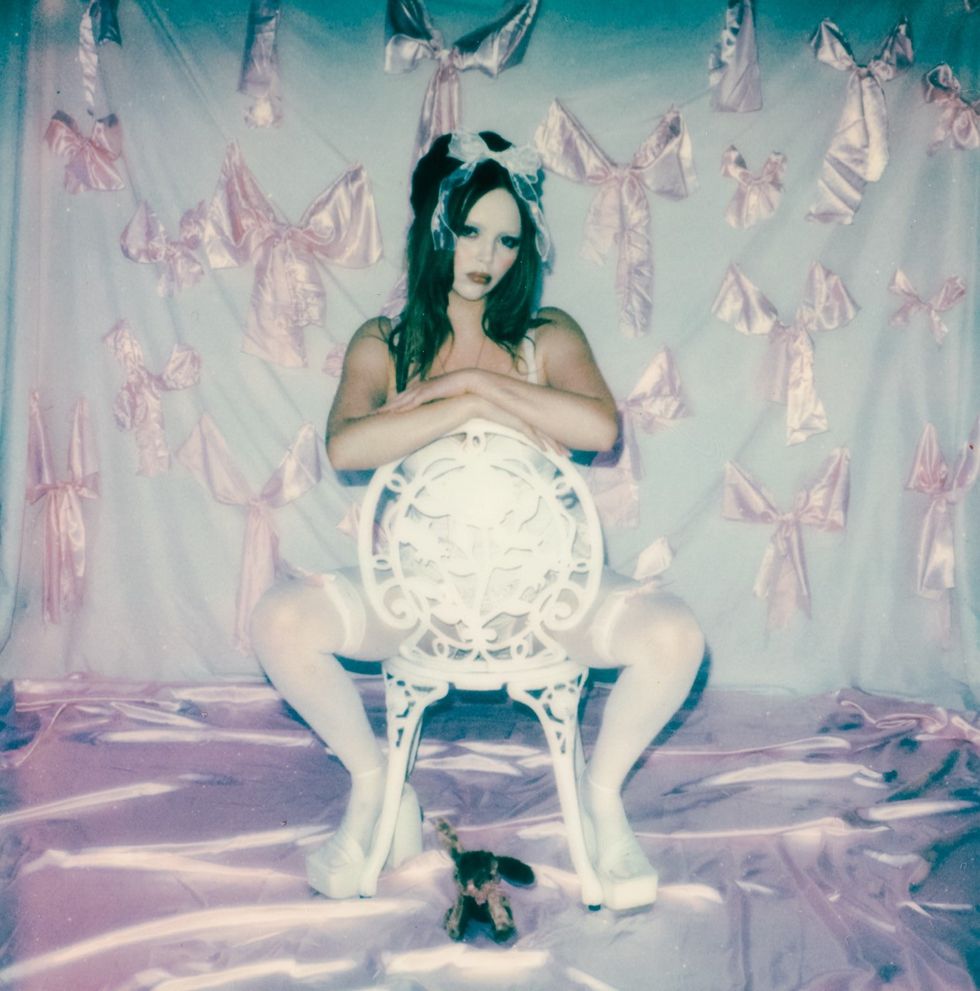
MF: I love the sort of VHS analog video art style of the music video. What was behind that decision?
PM: It was partially because I like everything lo-fi. I'm not an HD girlie. But also, another part was just insecurity. I'm like, “Oh, I need it to look hella crunchy or soft, so you can't see my skin.”
MF: Stop. You're glowing!
PM: But you know what I mean. As a girl, obviously, my brain goes a little crazy sometimes. But also, that wasn't the only reason. I do only like very lo-fi stuff. Everyone just happens to look better on those cameras, too.
MF: I love the very soft, feminine, almost “trad” aspects of the video, contrasted with the violence of the lyrics.
PM: I'm like, “I hope you die.” Yeah, that's the core of me and the core of being a woman. Obviously, other people have their own ideas of what femininity is. For me, it's very traditional. I'm very trad. I'm a redneck from Texas. I grew up on a farm. I've always loved clotheslines; they're the prettiest thing ever to me. I'm trying to create a metaphor for it, but there wasn't anything at all. I was just like, this is going to look hot. If we were in ninth-grade reading school, I could be like, “Oh yeah, to be a woman is the nuance of being all feminine and cute and then also angry. Filled with feminine rage.” But really, there's no real thought behind that.
I think things mean a lot less than everyone thinks they do, at the end of the day. Like, our ninth-grade English teachers, I keep bringing that up because they would fail me all the time because I felt like the questions were so subjective to the reader. They would be like, “What did the author mean when they said this?” And it's like, really, he didn't mean anything. He's just trying to fucking pay his rent. Now that I'm writing my own songs, I realize lyrics don't mean that much. Maybe there was kind of an inspiration, but it's not that deep.
MF: It's kind of like sometimes this word just sounds good there.
PM: Literally, that's all it is. It's just syllables, and anyone who tries to say it's that deep is just trying to pander to people who want it to be deep.
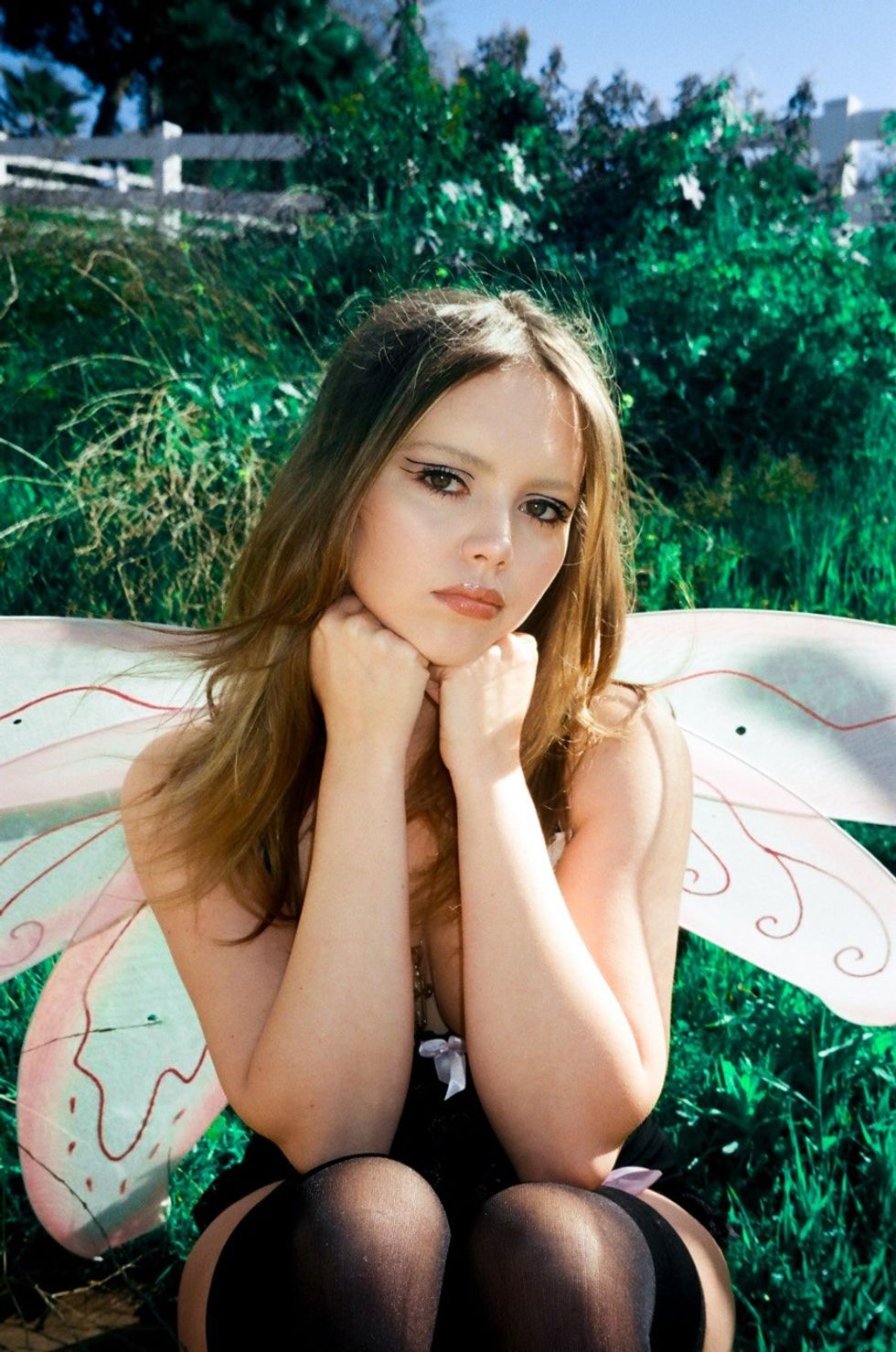
MF: I got a sense of your early inspirations and influences, but who is exciting you right now?
PM: Well, honestly, I haven't been listening to so much music lately. Obviously, I have all the old things that I'll listen to from the past. It's almost like if your stomach hurts and you eat a cheese quesadilla because that's your comfort food. I don't have a large palette at the moment. My comfort music right now is Cleaners from Venus, because it's just so familiar to me, Charlie Megira, Cindy Lee, and sometimes I'll do Exotica.
There's also this one band that is a newer artist for me that I've been playing all the time in the car, and they're called Daughter Bat and the Lip Stings. It's a really crazy name, but their music is incredible. I just found them in the last few months, and I've been listening to them every day.
MF: I'll have to check them out. Do you think you would ever go a little harder in your sound? Because it seems like your influences are a bit more punk.
PM: Oh, yeah. I'm open to that for Faerybabyy. I actually have a side project that I'm going to put an EP out with soon called Delta Girls, and that's all egg punk. The BPM is 280 for almost every single song, which is insane. One song is a minute and five seconds long, and the rest are under 55 seconds because they're so fucking fast. But it has a full song structure. So, yeah, that's pretty heavy. But it's also not because it's so silly.
MF: That would be fun to do live.
PM: That's why I was going to keep it separate. Faerybabyy songs are so emotional live, I would want to cry on stage. Delta Girls, there's nothing personal in it at all. I could wear a diaper on stage, and I'd be fine. Maybe I would still be scared because I'm not a performer, but maybe I wouldn't.
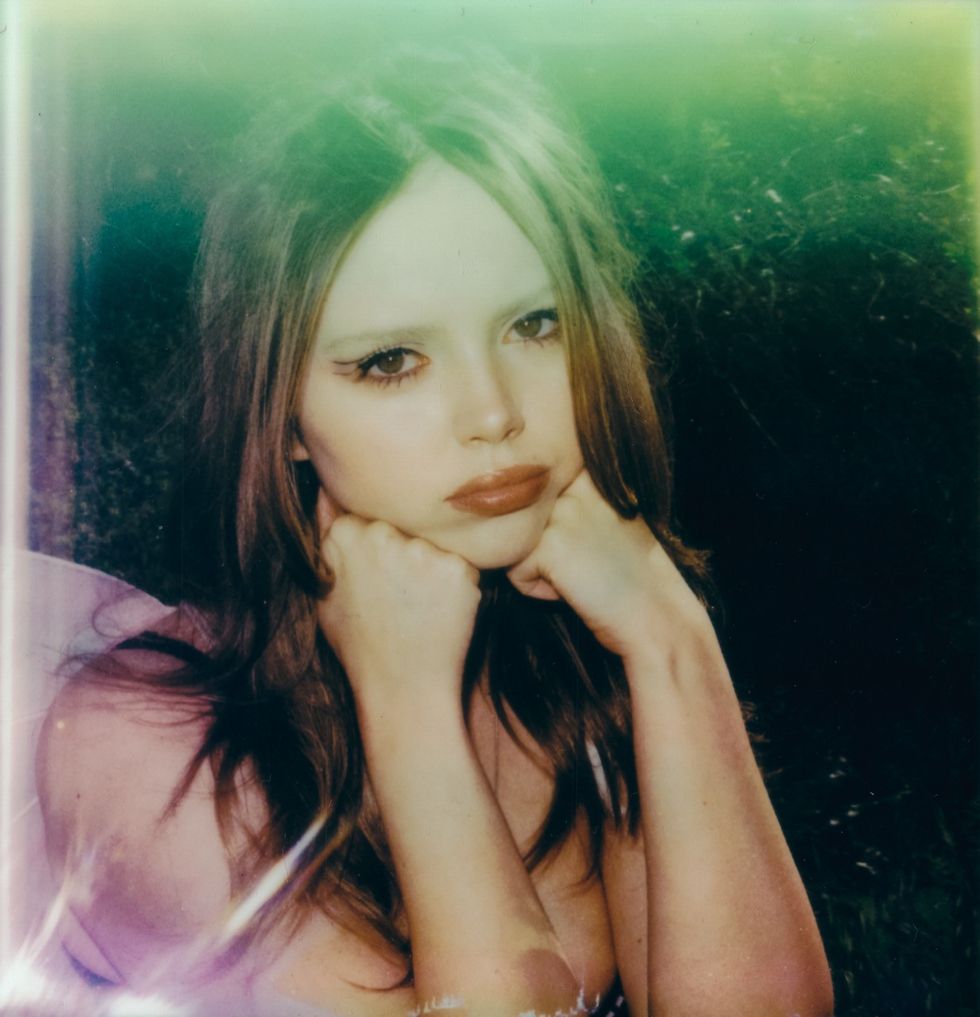
MF: That's so cool. I feel like I'm uncovering so many layers of you.
PM: I'm like an ogre.
MF: That onion analogy has shaped our entire generation.
PM: I love Shrek. I can actually quote the entire first Shrek movie. It has to be on, but I don't need subtitles or anything.
MF: I wanted to ask, what's your sign and do you identify with it?
PM: So I'm a Gemini sun and moon. I do identify with it sometimes. It depends on the day, but that's so Gemini of me. I'm Christian now, so I try not to get too excited about Zodiac signs, but it's just so fun. I try not to do the future predictability things with it anymore. But I know the basics and would talk about them in a conversation. I love my Zodiac girls. I love history and mythology, and astrology kind of ties into all that. It's almost like math but for girls.
I feel the Gemini thing, though, in the way that people always talk about them. Everyone's like, “They're fake,” and it's like, “No, I'm two-faced to myself. I'll be really happy, and then I'm about to go to the mental hospital another day because I'm so sad.” I am moody, to say the least, but I'm not ever mean. My sides are either aggressively sad or manic. I'm also a bit of a devil's advocate. I see both sides to everything. Even in my personal confrontations, I see things from other people's perspectives, even against me.
Want more stories like this?
The People We Become For Money
Treat Yourself to Some Eye Candy
The Art of the Stack

